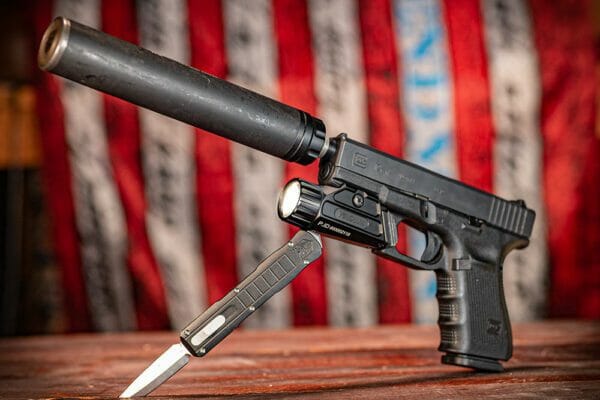
A California Federal District Judge from the Southern District of California ruled that switchblades are not protected arms and not protected by the Second Amendment.
In the case Knife Rights v. Bonta, brought by Knife Rights Inc, North County Shooting Center, LWGG L.P., and three named plaintiffs challenging a California law banning switchblades, the plaintiffs argued that the regulation violated the Second Amendment and the Supreme Court’s Bruen decision. They stated that switchblades are protected arms that the state cannot ban. The case is similar to the butterfly knife case out of Hawaii, where a three-judge panel from the Ninth Circuit Court of Appeals ruled that Hawaii’s law banning butterfly knives violated the Second Amendment. Judge James Simmons, a Biden appointee, would come to a different conclusion in this case.
In the Supreme Court’s Heller decision, the Court said that the government cannot ban arms in common use. The plaintiffs pointed out that 1.2 million switchblades are sold annually. The plaintiffs say that constitutes “common use.” The judge disagreed, saying that the plaintiffs misunderstood Heller. The judge stated that the number of switchblades sold doesn’t matter. He noted that common use only applies to self-defense cases. The judge didn’t believe that there was enough evidence to show that switchblades are in common use for self-defense.
“Second, the Court must determine whether the regulated switchblade at issue is commonly used today for self-defense,” Judge Simmons wrote. “Though Heller announced and Bruen reiterated that the Second Amendment extends only to bearable arms presently in common use, neither case clarified a metric by which courts should determine whether a weapon is ‘in common use.’ Instead, the latter case, Bruen, simply repeated Heller’s observation that the Second Amendment “protects the possession and use of weapons that are ‘in common use at the time.’ See Bruen, 142 S. Ct. at 2134. In contrast, ‘dangerous and unusual’ weapons are ‘outside the scope of the Second Amendment.’”
The judge also said that “dangerous and unusual” are independent of each other. The judge effectively changed “dangerous and unusual” to “dangerous or unusual.” He stated that neither side disputed that switchblades are dangerous; therefore, it shows that the original text of the Second Amendment does not cover switchblades. Step one of the Bruen test is to show a law is not consistent with the text of the Second Amendment. The judge didn’t believe that the plaintiffs satisfied the requirement.
“Because Plaintiffs bear the burden of satisfying Bruen step one and fail to prove that the regulated switchblades are in common use today for self-defense or that the weapons are not dangerous and unusual, it follows that there is no genuine dispute of material fact as to this issue,” the judge ruled.
Judge Simmons said since the plaintiffs failed step one of Bruen, he did not have to move to step two. He said he chose to address step two anyway. In step two, the burden falls to the defense to provide historical analogues from the founding era that shows a law is consistent with the history and tradition of the Second Amendment. The state presented laws dealing with clubs before the founding era. They also used two laws from the 1900s banning clubs and several from the late 1800s. The late 1800s and 1900s are well outside the founding era. California also used an 1830s law banning bowie knives as an analogue.
“Defendants also identify clubs as a representative historical analogue,” the order reads. “Defendants claim that laws regulating clubs date back to the Founding era and that ‘our nation’s history’ has a ‘robust tradition of regulating clubs.’ Defendants name seven states that regulated clubs spanning from 1664 to 1889 and two states that regulated clubs in 1905 and 1923. Like Defendant’s proposal of using bowie knives as a historical analogue, they do not describe what properties clubs have that are similar to the regulated switchblades.”
The judge issued a summary judgment for California, meaning the law banning switchblades in the Golden State survives the legal challenge at the District Court level. The case can be appealed to the Ninth Circuit Court of Appeals. If appealed, a three-judge panel will decide if the judge erred in his ruling.
About John Crump
Mr. Crump is an NRA instructor and a constitutional activist. John has written about firearms, interviewed people from all walks of life, and on the Constitution. John lives in Northern Virginia with his wife and sons, follow him on X at @crumpyss, or at www.crumpy.com.

from https://ift.tt/0TgFdAm
via IFTTT

No comments:
Post a Comment